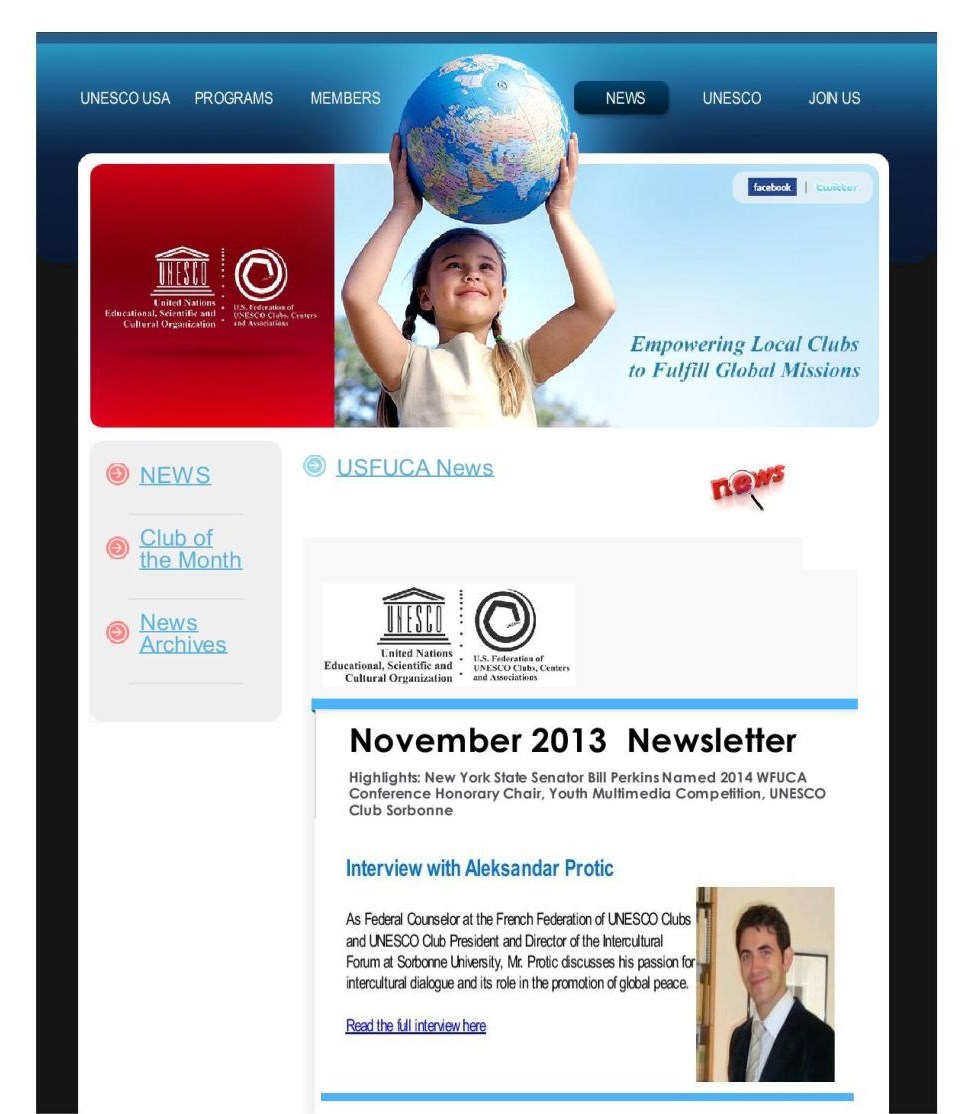Albert Gianatan: You are highly involved in the promotion of peace—lecturing at places like Oxford and Cambridge, presenting the Tesla Memory Project at the UNESCO Headquarters, studying in detail how intercultural communication works. How did you become interested in this field? Was there a moment of epiphany or has this passion steadily grown over the years?
Aleksandar Protic: I grow up in multicultural Belgrade, a crossroads between East and West. In a time of the Yugoslav wars, as a child I wrote peace poetry. After seeing the war consequences, I have transformed poetry into action and I became a peace activist. Active boy scout and judoka in my childhood, I was constantly learning about diversity, respect and accuracy. Afterwards, studying in universities in three continents, my passion was always observing, comparing and analyzing communication, its forms and expressions. Formally, I completed my Masters degree in cross-cultural communication at Sorbonne.
Albert Gianatan: Most people can agree that communication and education are benevolent goals, but what is it precisely about cultural understanding and UNESCO’s work in it that really intrigues you? What is it that drives you to study it, speak about it, take action to promote it?
Aleksandar Protic: My enthusiasm towards UNESCO is twofold : first of all, UNESCO’s noble goals are a constant source of inspiration reminding us that there is always more to be accomplished. I am very enthusiastic about the organization’s idea, since the foundation: peacemaking by many means, and investing in education, culture and science instead of arms.
Secondly, it seems to me that one of the most important developments which occurred in the last decades in the field of youth cooperation with governments is precisely the UNESCO’s Youth Forum. It is the only place where young delegates can implement their ideas into the highest level decision making-bodies.
Additionally, I consider that Mr Guy Djoken’s example of cross-cultural peacebuilding is very precious and our UNESCO Clubs are very lucky to have him.
Albert Gianatan: Why do you believe that intercultural understanding and communication are effective mechanisms with which to advance peace?
Aleksandar Protic: Effort to understand diversity guides us to reconciliation, even though peace could not be created with a one-time act. It is actually the communication which helps us to provide information, to process it, and to improve decision making in order to improve the relationship.
In a more global level, Communication was defined by UNESCO as an essential tool for reconstructing civil societies torn apart by conflict.
Albert Gianatan: What is the single most meaningful endeavor you have led or participated in thus far?
Aleksandar Protic: The most meaningful endeavor would relate to some personal effort and action, therefore, this is not the place I would use to talk about it. Nevertheless, I will mention something I am proud of concerning our Tesla Memory Project: Educating young people all over the world about Nikola Tesla, transmitting them an example of a great person, and a great role model who first transformed his own world, and then the world we all live in.
Albert Gianatan: For anyone out there who desires to make a change in this field but does not know what to do, how do you recommend they start?
Aleksandar Protic: Lao Tzu considered that the journey of a thousand miles begins with one step. If everyone starts by making positive changes in its own life and surroundings, it will make a multiple difference.
Speaking more about organizing synergies, I would underline that UNESCO Clubs give the extraordinary possibilities to young people to become members of a great network, to relate to amazing people, to earn valuable knowledge, experience, and symbols. Joining the UNESCO Club family would definitely be my recommendation in terms of group activism.
Albert Gianatan: How does the future of cross-cultural communication look? What role do you see yourself playing in the overall picture?
Aleksandar Protic: Global communication, including the cross cultural communication, is already tending toward virtual communities and therein lies its future. However, communication is our own responsibility in despite of its form.
I would aspire that my role doesn’t change the direction, but to enlarge its impact: always contributing to assertiveness, culture and education.

